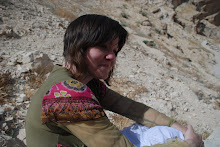I had been out of London when the riots began, having a genteel Sunday afternoon in Stratford-on-Avon. My mobile rang as I was standing in a queue at the Royal Shakespeare company: the ringtone blared from my handset generating a severe frown from the one woman taking forever dealing with enquiries at the counter. I quickly stifled it.
“Where are you?” growled the voice down the phone of a friend – a campaigner for Kurdish rights from north London.
“Oh, I am in Leamington Spa visiting my sister and we are trying to see something at the RSC!”
“I thought you would be out in the middle of it all, photographing.” She said.
“Photographing what; in the middle of all what?” I asked, puzzled.
“Oh the police have shot another man dead, and the demonstration against his death turned into a riot, but the organisers of the protest have condemned the riot, people have been made homeless because their apartment block has been burned down. It is chaos!”
“Riots in London why?” I asked, inwardly cursing my bad timing for leaving the city.
More ferocious stares from the grey haired woman manning the counter…
“Er, well I am at the theatre; I can’t really talk, will be back later on tonight.”
I had already been fourth place in the queue for over ten minutes, which grew ever longer as the attendant fumbled and fussed. I wondered if queuing, an oft-observed cliché about English life, like much else in Stratford-on-Avon, was deliberately being overdone for the American tourist market. I doubted queues were much of a feature of Elizabethan life, although rioting was probably more common in Shakespeare’s time and after my visit to the town of the great man’s birth I could see why he could not wait to get to London to join in with all that violence and debauchery, just as I could not wait to return to photograph the debauchery of the second Elizabethan age.
The last decade of Elizabeth Tudor’s reign has been recognized by historians as an exceptionally volatile period, characterized by “high prices, food shortages, heavy taxation" and major wars against Spain and Ireland.
As I walked around the RSC souvenir shop, I could see the staff discreetly nudging each other and pointing at me as if I was going to steal something: they must have heard me discuss the news of the riot with my sister and thought we were a mini looting team, day-tripping from London.
London is the city in which I grew up and I always feel a sense of relief on my return – not least after being in Stratford-on-Avon. As news came through that Hackney was kicking off, I felt I had to get out and see what was happening.
I have filmed and photographed demonstrations all over the world since completing my Masters in Fine Art at Central Saint Martins, which was where my work began to focus on mass movements, insurrection and protest. Discontent and unfairness bug me and keep me awake at night. I have to work out why these things happen; this motivating factor regularly drives me into the streets and even into conflict zones with my cameras to see, to understand. The media is mediated; I need to see for myself to know why people suddenly express rage and frustration. I’m left wondering why they don’t express rage and frustration all the time. Why riots in London now and not following the police shooting of Charles de Menezes in Stockwell in 2005?
And now London is in shock about the rioting, with many expressing outrage feeling their sense of security violated. BBC News Anchors’ first response to any understanding expressed concerning the possible causes underlying the riots is a pithy but loaded: ‘But surely you don't condone this?’ Right now, people are venting and expressing their hurt, but simply venting will not solve the problems that have instigated these riots.
In Elizabethan London a fabulously wealthy elite lived cheek-by-jowl with a thoroughly destitute majority. Even when gainfully employed, workers in handicrafts earned not much more than subsistence wages: for example, a 1589 proclamation prescribes wages for London linen weavers of 6d a day with meat and drink, or 10d a day without meat and drink. Given this polarization, it is not surprising that the 1590s were especially marked by social disorder and protest.
The public spending cuts this year meant many of the youth summer schemes in London did not run. These riots suggest boredom – and inarticulate rage. The youth are smashing and grabbing the things society tells them to want. The coalition government's austerity measures have hit this generation hard. There will be no higher education for those who cannot take on burdensome debt. The chance of ever being able to afford to buy a home in London seems remote – except for those whose wealthier parents can provide the deposit for a home loan. A generation of young people have been left behind by this coalition’s policies and the policies of previous governments. How can these young people see that they have anything invested in British society that will enable them to become fulfilled and successful adults?
Pennie Quinton is a freelance journalist based in East London. You can read more of her writings on her website penniequinton.org


No comments:
Post a Comment